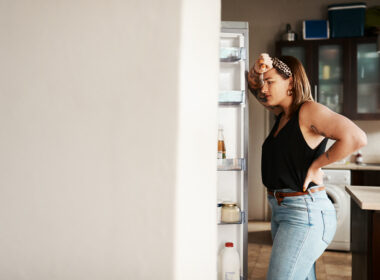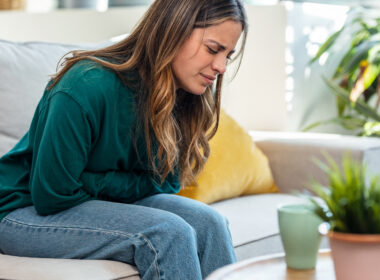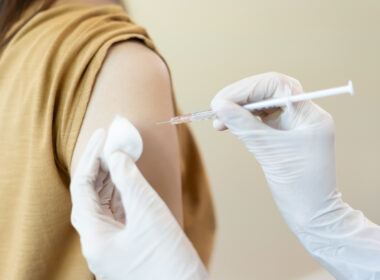This past week I had the pleasure of addressing a group of young women who were part of an extra-curricular course on human relationships and how to keep them good and true. It was a really special course talking about what every 16-year-old girl thinks about―relationships. Matters of the heart were discussed, but in the end the take-home point I hope I emphasized enough was not about relationships with friends, parents or the opposite sex. It was about one’s relationship with oneself.
Popular media has made sure that young women know all the “crazy, sexy, cool” things they can DO with their body parts. Media outlets say you should be flaunting private body parts and pushing yourself to do things you aren’t comfortable doing just so that other people will notice you. But HOW these parts actually work is completely ignored.
This disconnect was apparent in the questions my young audience had about their cycles, birth control, and hormones.
One girl was clearly surprised to learn that birth control overrides a woman’s natural cycle and that a “period” experienced while on the Pill is actually just a hormone withdrawal bleed due to the week or 4 days of placebo pills you take.
Another girl asked how painful should a healthy period be? Hmmm, it shouldn’t be.
Do you see a disjoint here?
As a clinical nutritionist, stuff that has to do with body parts and talk of what comes out of certain body parts doesn’t disturb me. The trick is inspiring others to get comfortable with what they feel they can’t talk about. That’s where the real confidence and power comes.
So here I was, speaking to a room full of girls whose curiosity was piqued and all I wanted to do was get them comfortable with knowing themselves.
Predictably, no one wanted to talk about their periods out loud, and premenstrual syndrome (PMS), mood swings, cramps, and weird cycles were definitely taboo. So I worked to remedy that and said the words “mucus” and “hormones” as many times as the natural flow of my talk would allow.
It will take much more than a half-hour talk to get women comfortable with learning about their own bodies. But imagine what amazing changes could come of it . . .
For me personally, it was a very easy connection. Once I started charting, I could see a pattern in my moods and cravings that consistently lined up with my body getting ready to shed its endometrial lining. Before charting, I couldn’t tell you whether I was coming or going, approaching ovulation or getting ready to not wear white pants and try to get out of swim practice.
If a young woman learned about her hormones and the inevitable but predictable changes in her mood, skin, appetite and mental clarity that result from the natural rise and fall of estrogen and progesterone, if she learned how to track these changes and, consequently, track any hormonal imbalances, if she learned to appreciate her cycle instead of suppressing it ―don’t you think that woman would feel more capable of helping herself? Knowing herself and her monthly patterns, don’t you think she would feel more in control and less prone to the stereotypical emotional outbursts of PMS?
If a young woman learned, from the get-go, how to track and predict her ability to co-create new life, don’t you think that would change her decisions about any sexual activity? How do you think a woman with this kind of knowledge would approach becoming a mother later in life? Imagine the mindset she would bring to a serious relationship in which she could tell her committed partner about concrete markers of her monthly hormonal changes and her fertility.
Relationships are ideally centered on love and gift of self, but in reality, they often hinge upon who’s in control, who’s got the power. A woman who knows her body and knows how to manage it and how to take care of it is a woman who is in full control of herself. She is a woman who loves herself enough to get to know herself in no uncertain terms. She is intelligent and chooses to use that intelligence to learn the standardized, scientific methods of charting her cycle and hormonal changes. Her power comes from true knowledge and acknowledgment of her own self-worth.
In a way, the simple act of charting is like taking a “selfie.” But instead of just capturing your temporary external appearance you get to glimpse into what’s inside and what will be with you for most of your life.
Resources for teen fertility awareness education
The Couple to Couple League realizes that mothers are in a special position to engage their daughters about the gift of their fertility. Their Mother / Daughter program lets you choose the resources you feel would be the best to communicate with your daughter about fertility awareness.
Teen STAR is a developmental curriculum founded by Hanna Klaus, MD (Sr. Miriam Paul , MMS) that helps adolescents and young adults come to terms with their emerging sexuality and fertility and assist them in making responsible decisions.
The Cycle Show is an educational, interactive, multi-media, fertility awareness workshop for young girls.
The FEMM App helps girls understand their reproductive health in all its physical and emotional complexity.
This article was last updated on April 20th, 2023 to clarify that a “period” on the Pill is not a true period.








In discussing creating new life and care as a mother with cycling and hormones, etc., please tell these young woman that the reproductive cycle does not end with childbirth but with breastfeeding, as I was taught in a physiology class by an excellent teacher as a sophomore in high school. With the right kind of breastfeeding, mothers can go one or two years without menstruation. For those interested, read a short, inexpensive book titled The Seven Standards of Ecological Breastfeeding: The Frequency Factor.